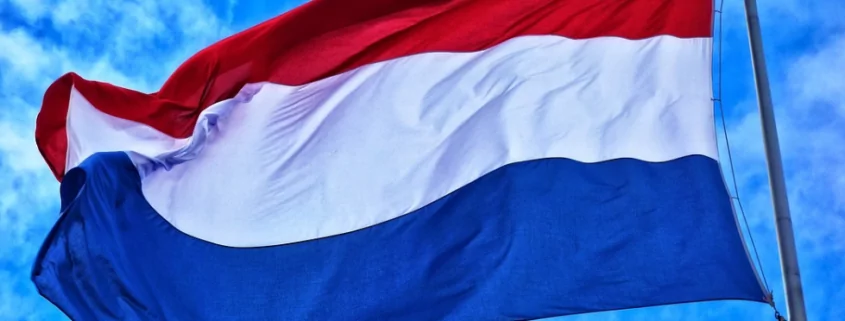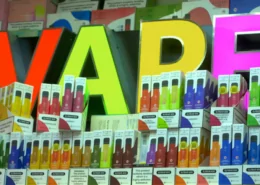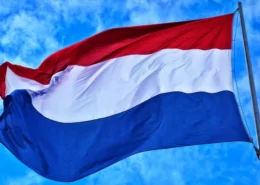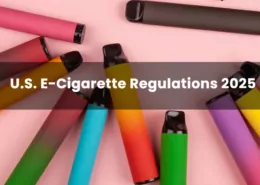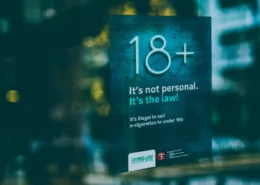Postponement of the Flavor Ban on E-Cigarettes in the Netherlands
In a surprising turn of events, the ban on flavors for e-cigarettes has been postponed once again. The new implementation date is set for January 1, 2024, which is three months later than initially planned. The reason behind this delay is the realization that the impact of the flavor ban on tobacco manufacturers is more significant than previously calculated. Consequently, State Secretary Maarten van Ooijen of Public Health, Welfare, and Sport has decided to grant tobacco manufacturers additional time. However, this decision has raised concerns among pulmonologists.
Read more:
The Netherlands to Ban Flavoured Vapes: Impact and Implications Explained
Background
The ban on flavors, such as apple, strawberry, or menthol, which can be “vaped” using an e-cigarette, was announced two years ago and was supposed to come into effect last summer. The government is deeply concerned about the increasing popularity of e-cigarettes among young people and, therefore, intends to allow only tobacco flavors.
Complications Arise
However, a complication has emerged. The National Institute for Public Health and the Environment (RIVM), commissioned by the ministry, has compiled a list of sixteen ingredients that tobacco manufacturers can still use to create tobacco flavors. Interestingly, the initial estimation indicated that approximately a quarter of the current tobacco flavors could continue to exist. However, upon reevaluation, it was found that the percentage has now decreased, ranging from 2% to 23% of the flavors that manufacturers can work with.
To put it simply, the impact of implementing the flavor ban is greater than previously calculated for tobacco manufacturers. Consequently, State Secretary Van Ooijen has decided to grant the tobacco industry more time.
| CAS-nummer | Stofnaam Engels | Stofnaam Nederlands |
|---|---|---|
| 35044-68-9 | beta-Damascone | beta-Damascon |
| 23726-91-2 | (E)-beta-Damascone | (E)-beta-Damascon |
| 23726-92-3 | (Z)-beta-Damascone | (Z)-beta-Damascon |
| 23696-85-7 | Damascenone | Damascenon |
| 23726-93-4 | (E)-beta-Damascenone | (E)-beta-Damascenon |
| 1125-21-9 | Ketoisophorone | Keto-isoforon |
| 4883-60-7 | 2-Hydroxy-3,5,5- trimethyl-2- cyclohexenone | 2-Hydroxy-3,5,5- trimethyl-2- cyclohexenon |
| 536-78-7 | 3-Ethylpyridine | 3-Ethylpyridine |
| 350-03-8 | 3-Acetylpyridine | 3-Acetylpyridine |
| 91-10-1 | 2,6-Dimethoxyphenol | 2,6-Dimethoxyfenol |
| 67-47-0 | 5-(Hydroxymethyl)- 2-furfural | 5-(Hydroxymethyl)- 2-furfural |
| 591-12-8 | alpha-Angelica lactone | alfa-Angelica lacton |
| 503-74-2 | Isovaleric acid | Isovaleriaanzuur |
| 1139-30-6 | (-)Caryophyllene oxide | (-) Caryofylleen oxide |
| 3738-00-9 | Ambroxide | Ambroxide |
| 564-20-5 | (3aR)-(+)-Sclareolide | (3aR)-(+)-Sclareolide |
Disappointment and Concern
This delay is a setback for the Ministry of Public Health and is also met with disappointment among pulmonologists. Physicians expressed their disappointment and concerns when the first delay was announced. They fear that the popularity of flavored e-cigarettes will continue to rise unabated, leading to dire consequences.
In response, Van Ooijen stated that he would prefer to ban flavors immediately, as they are clearly designed to entice children and young people to use e-cigarettes. However, he emphasizes that the delay does not mean cancellation: “The additional analysis conducted by the RIVM shows that the flavor ban potentially has a greater impact on manufacturers than we previously thought. Based on principles of good governance, I am obliged to address this issue. Nevertheless, I approach it with little enthusiasm.”
A Smoke-Free Society
The government aims to achieve a smoke-free society by 2040. In the meantime, it is making every effort to discourage smoking. For instance, the price of a pack of cigarettes will increase to 10 euros during this administration.
KWF’s Reaction: Postponement is Scandalous
“We find it scandalous that the flavor ban has been postponed,” says KWF spokesperson Annebel Schipper. “We see an increasing number of young people using vapes in society. We even have examples of elementary school children using them.” By postponing this measure, a new group of children becomes addicted to nicotine, preventing us from getting closer to the smoke-free generation.
Conclusion
The delay in implementing the ban on flavors for e-cigarettes has sparked debates and concerns among various stakeholders. While the government aims to discourage smoking and protect young people from the allure of flavored e-cigarettes, the impact on tobacco manufacturers cannot be overlooked. The extended timeline allows for further analysis and consideration of the consequences before the ban takes effect.
- Minneapolis Sets $25 Minimum Price for E-Cigarettes - July 11, 2025
- Alabama Schools to Implement New Anti-Vaping Policies - July 11, 2025
- Is Vaping and Driving Illegal in Rhode Island? (2025 Guide) - July 10, 2025

